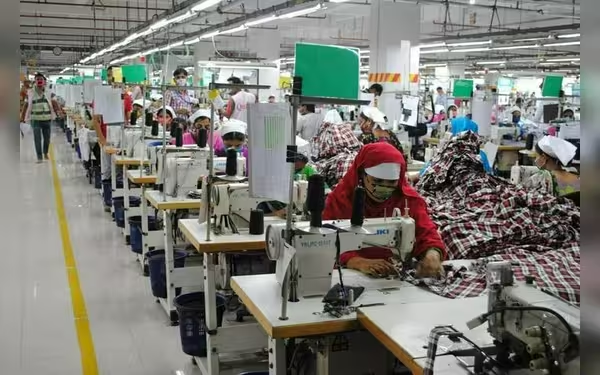Thursday, July 4, 2024 06:20 PM
Hari Welfare Association advocates for rural women empowerment
- Gender disparities in rural Sindh agriculture sector highlighted
- Challenges in implementing laws for fair payment and unionization
- Urgent need for comprehensive interventions to address women's issues
 Image Credits: brecorder
Image Credits: brecorderThe report by the Hari Welfare Association sheds light on gender disparities and challenges faced by women workers and peasants in rural Sindh, emphasizing the need for comprehensive interventions to promote empowerment and gender equality.
Women workers and peasants in rural Sindh are encountering significant hurdles despite being a substantial part of the population. A recent report by the Hari Welfare Association has shed light on the difficulties faced by these women in various sectors such as agriculture, fisheries, and livestock. The report emphasizes the existing gender role disparities and advocates for a more inclusive and fair agricultural sector in Sindh.
The report highlights that gender inequality persists in the agriculture sector of Sindh, despite the presence of laws like the Sindh Women Agriculture Workers Act (SWAWA) of 2019. This act, aimed at recognizing women's contributions, faces challenges in implementation, particularly concerning fair payment and union formation. Many rural women are not receiving minimum wages or able to effectively unionize.
Efforts to enhance women's participation in sectors like water management have been hindered by bureaucratic obstacles, impacting the effective implementation of legislative amendments. The lack of clarity and consistency in laws such as the Sindh Industrial Relations Act (SIRA) of 2013 further complicates the situation, leading to a lack of significant unionization among women peasants.
Land ownership remains a critical issue for rural women in Sindh, with a majority lacking ownership rights. This lack of land ownership results in challenges such as poor harvests and limited property rights. While initiatives like the Sindh Benazir Income Support Programme exist, concerns about promoting empowerment rather than dependency persist.
Educational and healthcare disparities further exacerbate the challenges faced by women workers and peasants in rural Sindh. The report underscores the urgent need for comprehensive interventions to address these multifaceted issues and stresses the importance of effectively implementing existing laws to promote gender equality and empowerment in the region.
The report by the Hari Welfare Association brings to light the struggles faced by women workers and peasants in rural Sindh. It calls for immediate action to address the gender disparities and challenges hindering the empowerment of women in various sectors. Efforts towards implementing existing laws and introducing comprehensive interventions are crucial to promote gender equality and improve the livelihoods of women in rural Sindh.













